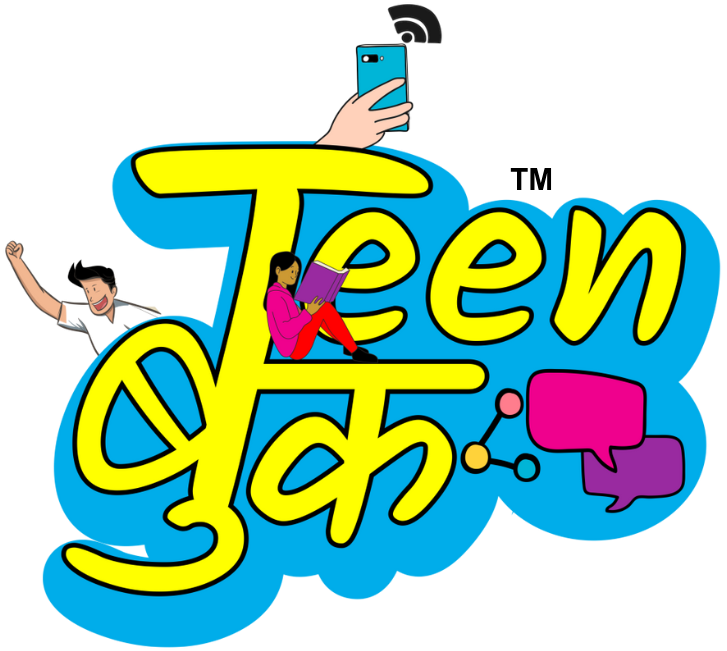Is everything on the internet real?
‘What’s the solution to this maths problem?’ – Let’s Google bro, maybe Brainly has an answer! ‘Why is my head hurting on the left side?’ Let me Google and check. ‘Should we put toothpaste on pimples?’ Let’s see what Google says! Are you doing this too? Almost everyone has access to the Internet these days. But is all the information on it true? How do you find out if the advice you seek is true or fake? Curiocity Central has got the answers!

With all the information that’s floating on the internet, we often absorb unverified advice that can harm us instead. Here are some ways you can verify it.
Check the source
Who is giving that information? Is it a message or social media post with a website link? Ask yourself if the website or the media source is qualified to give you that advice. Prominent news websites publish news across themes. But if a social page with little credibility (check by a second round of googling about it), a parody website, a religious or spiritual resource, or one run by a pharmaceutical company, it should get your red flags up.
For example, a viral message circulating during the coronavirus pandemic claimed a false cure and attributed the info to BBC news. A simple google search will tell you that BBC published nothing of the sort. Type <claim>+<news website name>If the website’s name in the link doesn’t seem familiar, don’t click on it. It might direct you to a fraudulent website meant to steal your personal information. Google the website name and go to its ‘About us’ section to understand who runs it and what is its purpose.
Also, check out this really informative video – Internet has been interpreted below: ( article below video)
Who is making the claim?
Often, a ‘forwarded’ message on WhatsApp or some post might claim seemingly impossible stuff – like a celebrity or an influencer died, or some free Robux ( currency used in a game) or Spotify membership if you download this! People like such freebies, hence get trapped into clicking those links. However, before you do so, check who is making the claim – is it only generic like “reliable sources” or does it name a particular person?
It’s not a good idea to trust this source simply. Google the named person and check whether they really are offering some free coupons. If there are not more than one or two mentions of this person online, and if you can’t find what website claimed that death, it might be a good idea to verify this news in other ways and not trust this source right away.
Did it make you go ‘wow!’ or ‘oh no!’
Hold on then. If a WhatsApp message or an Insta post makes a claim that’s too big, surprising or upsetting, (like a celeb’s death, some free coupons, free tickets to concerts etc) it should not be trusted without further checks. A major news organisation would certainly publish this information if it’s a major announcement on some ailment or a celebrity death.
Messaging style
If the message is in ALL CAPS, contains many exclamation marks, is in multi-coloured text, has jumpy video or audio and dramatic audio-visual effects, or has poor grammar and sentence formation, it’s probably false. It probably needs a check if it’s a text quote with a person’s photo to suggest they gave that advice.
If there’s a still photo with audio of someone speaking and claiming that it’s a celebrity, some YouTuber or diet advice, it might be worth asking yourself why they are not shown saying that on video. However, one must remember that video proof is also not entirely reliable since technology enables many tricks such as a person’s lip movement could be synced to any audio. It might also be worthwhile to reverse search the shared images on Google.
If results show recent posts with the same information across several media sources, with the same person/expert or celebrity’s photo, it might at least confirm that it’s the same person who’s said it.
Fake-news-busting websites
When you can’t verify a claim yourself and need help from an additional but reliable source, websites specialising in fact-checking, like Alt News, AFP FactCheck, AP Fact Check, BBC Reality Check and others, might be good sources to turn to.
Share it! (Don’t)
If a message stresses too much for you to share it or make it ‘viral’ then it is a reason to not trust it. A credible message speaks for itself instead of making appeals to be shared. Also, in general, develop a habit of not randomly forwarding messages, even if it feels like a helpful thing to do.
This is how most fake messages find high circulation. Most of us feel a message might help someone and share it and it keeps getting shared on and on. And suddenly a fake message is everywhere! If we can’t be sure of the message’s authenticity, it’s best to hold back.
Photo: Shutterstock/Ollyy/Person in the photo is a model, names changed.
Do you have any questions that are bothering you? Share with us in the comments box below. Remember no rude words or personal information in the comment box!


